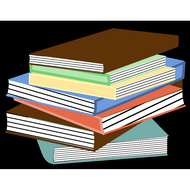The Genocide Scrapbook Project
(View Complete Item Description)This Lesson Plan was created by Joanna Pruitt as part of the 2020 ESU-NDE Remote Learning Plan Project. This original lesson is for classroom use; however, there is a virtual option as well. Educators worked with coaches to create Remote Learning Plans as a result of the COVID-19 pandemic. The attached Lesson Plan is designed for Grades 9-12 English Language Arts students; however, this could also be used as a Social Studies project as well. Students will evaluate credible sources through research on genocides post World War II after completing a novel unit covering the Holocaust. Students will also create scrapbooks using summarizing, citation, informative writing, textual evidence, caption writing, and persuasive writing. Students will also be expected to demonstrate oral communication skills as they have to present their projects to the class. Students will use background knowledge to clarify text and also gain a deeper understanding by using relevant evidence from a variety of sources to assist in analysis and reflection of informative text.
Material Type: Activity/Lab, Lesson, Lesson Plan, Reading, Student Guide



















